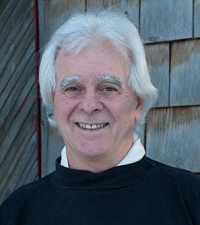Author Commentary

Colin D. Mallard, regarding his impetus for writing Uncommon Reason: A Novel of Peace in a Time of Conflict, Turmoil, and Terror:
In late July, 1990, as the tensions leading to the Gulf War mounted, I knew the Iraqi people had little idea as to the horrors about to be visited on them. As a child I had experienced the intense bombing of the city where I lived, Birmingham. I also knew the American military, as any military is, was eager to test out its new weapons. I later saw footage of the 'highway of death' between Kuwait and Basra. It made me sick to think of what those men must have experienced in the last moments of their lives.
As more troops and equipment were positioned in the area, I found myself writing a story in response to the events taking place. That writing seemed to ease my mind and eventually became the novel called Uncommon Reason. It took seventeen years of writing and re-writing for the book to evolve into its current form. In the meantime, I wrote several others, but this one wouldn’t let me go. The writing of it was a deep inner compulsion.
The premise for the book was a question that kept coming to my mind over and over again. What would happen if someone of the stature of Lao Tzu, the Buddha or the Christ became leader of one of the world’s most powerful nations? How would he respond to the events taking place today? The book is the story of two masters, two sages, one an American President and the other a Sufi master from Lebanon. Although they came from vastly different cultures and never met, they did in fact share a deep and profound understanding. The story is about their lives and how they dealt with current events.
One thing I had learned in the sixties was that it's easy to criticize and much more difficult to offer alternatives. With that in mind, I wanted to create a book that was not only a critique of contemporary society but also offered insight into and understanding of another way of living—a path different from the one we seemed to be taking.
What has driven me for the past seventeen years has been the very strong feeling that with the Gulf War we made a turn, the consequences of which would lead to ever escalating violence and greater disparity between the wealthy and the poor. I was afraid that unless we woke up to what was going on we were going to reap the whirlwind. Then came 9/11, and my worst fears were realized. Once it became clear what the Bush administration was doing, I knew we were going even more deeply into a place which, if we had any awareness at all, we would avoid at all cost. It was also clear to me that Western nations could expect more deadly attacks.
Despite all the rhetoric about terrorists, it was impossible for me to pretend that US foreign policy was clean. I had traveled enough to know some of its deadly effects. To my mind, in its worst excesses, it is an expression of State-sponsored terrorism and as long as we support such policies, we are putting not just ourselves at risk but also the hungry and impoverished people of the planet.
On the afternoon of 9/11, I sat down and wrote a response to the nation and the world—a response the President in my book would have made. I later included it in the final chapter, and it could not have been more different from Mr. Bush's speech later the same day. It certainly could not have been more different from the subsequent path taken by the administration.
One of the questions at the root of this book is: How do we become aware of that about which we are ignorant when ignorance is, by definition, lack of awareness. The answer I came to was found in a story told by a Zen master. A man was fishing and caught a fish. Since the fish was too small, the man threw it back in the water and, for the first time, the fish realized he'd been swimming in something.
The fish was not comfortable when removed from the water. By the same token, we humans are not comfortable when removed from the sea of assumptions and beliefs we take for granted and of which we are largely unaware. In writing Uncommon Reason, I sought to lift us out of the water of our cultural and social agreements in the hope we would become aware of them and how they lead us down a deeply destructive path.
Whether we wake up in time to avoid what I see us heading toward, I don't know. I do know that violence begets violence. Then, what is the alternative? That’s what the book is about.
Colin D. Mallard
May, 2008 |
 |

Colin D. Mallard , Author
Uncommon Reason: A Novel of Peace
in a Time of Conflict, Turmoil, and Terror
< Back to Author's page |

